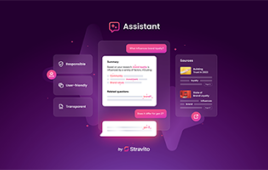
Artificial intelligence (AI) driven by machine learning (ML) algorithms is a branch in the field of computer science that is rapidly gaining popularity within the healthcare sector. However, graduate medical education and other teaching programs within academic teaching hospitals across the U.S. and around the world have not yet come to grips with educating students and trainees on this emerging technology.
“The general public has become quite aware of AI and the impact it can have on health care outcomes such as providing clinicians with improved diagnostics. However, if medical education does not begin to teach medical students about AI and how to apply it into patient care then the advancement of technology will be limited in use and its impact on patient care,” explained corresponding author Vijaya B. Kolachalama, PhD, assistant professor of medicine at Boston University School of Medicine (BUSM).
Using a PubMed search with ‘machine learning’ as the medical subject heading term, the researchers found that the number of papers published in the area of ML has increased since the beginning of this decade. In contrast, the number of publications related to undergraduate and graduate medical education have remained relatively unchanged since 2010.
Realizing the need for educating the students and trainees within the Boston University Medical Campus about ML, Kolachalama designed and taught an introductory course at BUSM. The course is intended to educate the next generation of medical professionals and young researchers with biomedical and life sciences backgrounds about ML concepts and help prepare them for the ongoing data science revolution.
The authors believe that if medical education begins to implement ML curriculum, physicians may begin to recognize the conditions and future applications where AI could potentially benefit clinical decision making and management early on in their career and be ready to utilize these tools better when beginning practice. “As medical education thinks about competencies for physicians, ML should be embedded into information technology and the education in that domain,” said Priya Sinha Garg, MD, associate dean ad interim for Academic Affairs at BUSM.
The authors hope this perspective article stimulates medical school and residency programs to think about the progressing field of AI and how to use it in patient care. “Technology without physician knowledge of its potential and applications does not make sense and will only further perpetuate healthcare costs.”
These findings appear as a perspective in the journal NPJ Digital Medicine.




